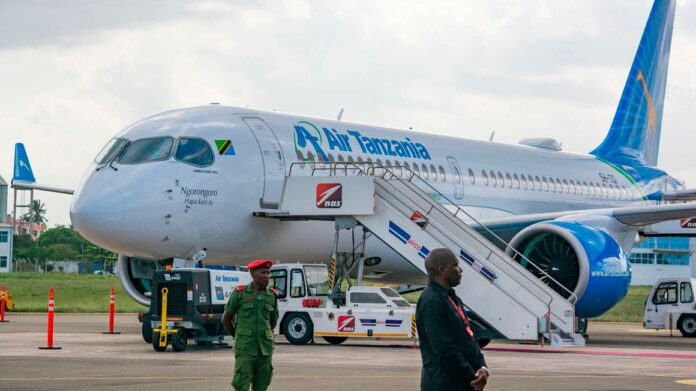Air Tanzania and Air Senegal are considering joint action against the engine manufacturers of Airbus A220-300 aircraft, which have remained grounded for the past several months owing to technical problems.
An Air Senegal delegation was in Dar es Salaam this past week for discussions with Air Tanzania officials on how best to take on Pratt & Whitney, the American aerospace company that produces the PW1524G-3 engines used by the planes.
Both national carriers believe that the company is dragging its feet in resolving the longstanding issue of defective engines, leading to mounting losses for the airlines as their A220-300 fleets remain grounded.
According to Air Tanzania CEO Ladislaus Matindi, Airbus A220-300 aircraft problems had been uncovered by all airlines operating the planes worldwide, which in Africa includes EgyptAir.
Apart from engine defects, the shortfalls also include lack of alternative engines and the plane’s body developing rust much sooner than intimated in its Maintenance Planning Document, thus elevating repair and maintenance costs.
“The PW1524G-3 engines made by Pratt & Whitney for A220-300 planes are supposed to be removed for maintenance after 5,260 landings but due to engine design defects they are removed before even 1,000 landings,” Matindi said.
The two airlines intend to take Pratt & Whitney to task for failure to fulfill its contractual responsibility to supply extra engines in the event of engine failures.
“We have been engaged in amicable negotiations with the company to fix the serious engine problems so that the planes can resume normal flight operations. But if amicable negotiations fail we could resort to legal action,” he said, adding that negotiations also involve compensation for the losses incurred so far, although he did not quantify how much Air Tanzania was losing.
Air Tanzania was the first African carrier to buy the Airbus A220-300 model in 2018 and its current fleet of 12 aircraft includes four of these.
EgyptAir grounded 10 aircraft over similar engine problems.
Published by The EastAFrican




